The State Government has announced the Biswa Bangla Sharad Samman for the year 2018.
The organisers as well as the people wait with bated breath for the announcement of the winners of these prestigious awards.
Here is the list of winners for 2018.
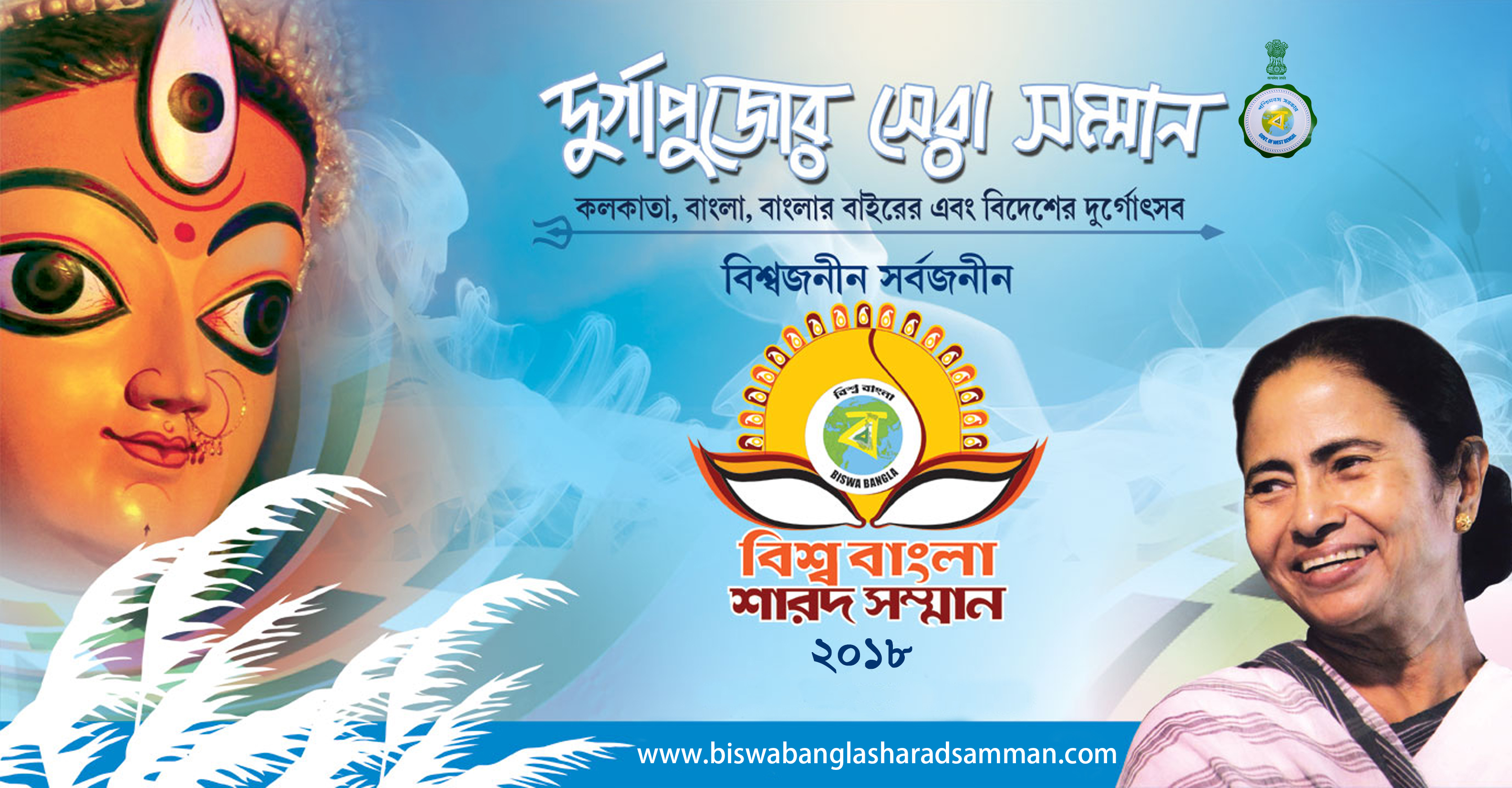
The State Government has announced the Biswa Bangla Sharad Samman for the year 2018.
The organisers as well as the people wait with bated breath for the announcement of the winners of these prestigious awards.
Here is the list of winners for 2018.
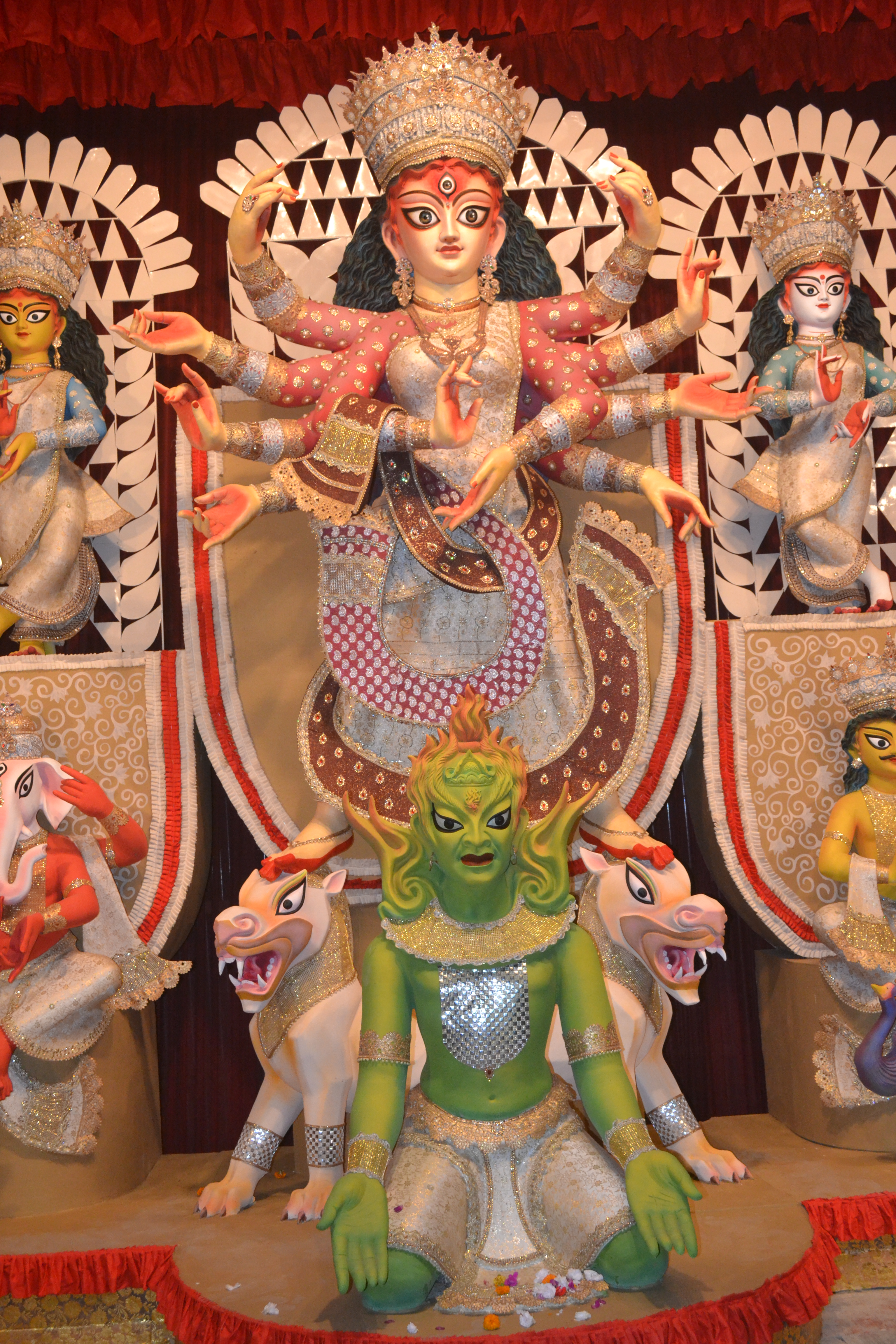
Bengalis are known for their penchant for food and travel. So, what better time to promote the tourist spots in Bengal, than the four days of Durga Pujo? With this thought in mind, the State Tourism Department has come up with an innovative idea.
To cater to tourists in Kolkata, the State Tourism Department has decided to go for direct promotion in housing complexes. Twenty-six of the big housing complexes have been selected for the purpose.
The promotion would be in the form of banners and hoardings. Some of the complexes, which play host to a large number of people, would also be visited by Tourism Department officials.
A similar plan is being made for the big puja pandals, where lakhs of people converge on each of the festival days.
Source: Bartaman

The homestay facilities in Dooars region are all booked to full for the festive season. This is a huge shot in the arm for the Bangla Government, led by Mamata Banerjee, who has been working tirelessly for the last seven years to project the state as an ideal tourist destination.
All the homestay cottages in Lataguri and Dhupjhora region in Jalpaiguri district, and the hamlets in Kalimpong district, have full booking for the festive period. The homestay owners and tour operators have expressed their happiness over this development.
Lataguri and Dhupjhora are extremely popular tourist destinations. Every year during Durga Puja, tourists throng these places. Additionally, several new homestay facilities have opened near Jaldhaka and Gorubathan. The natural beauty of these places is too alluring for tourists to ignore.
In the last two-three years, there has been a considerable rise in the number of homestay facilities in the State. The government has also come up with a new homestay tourism policy. This has led to a tourism boom for north Bengal.
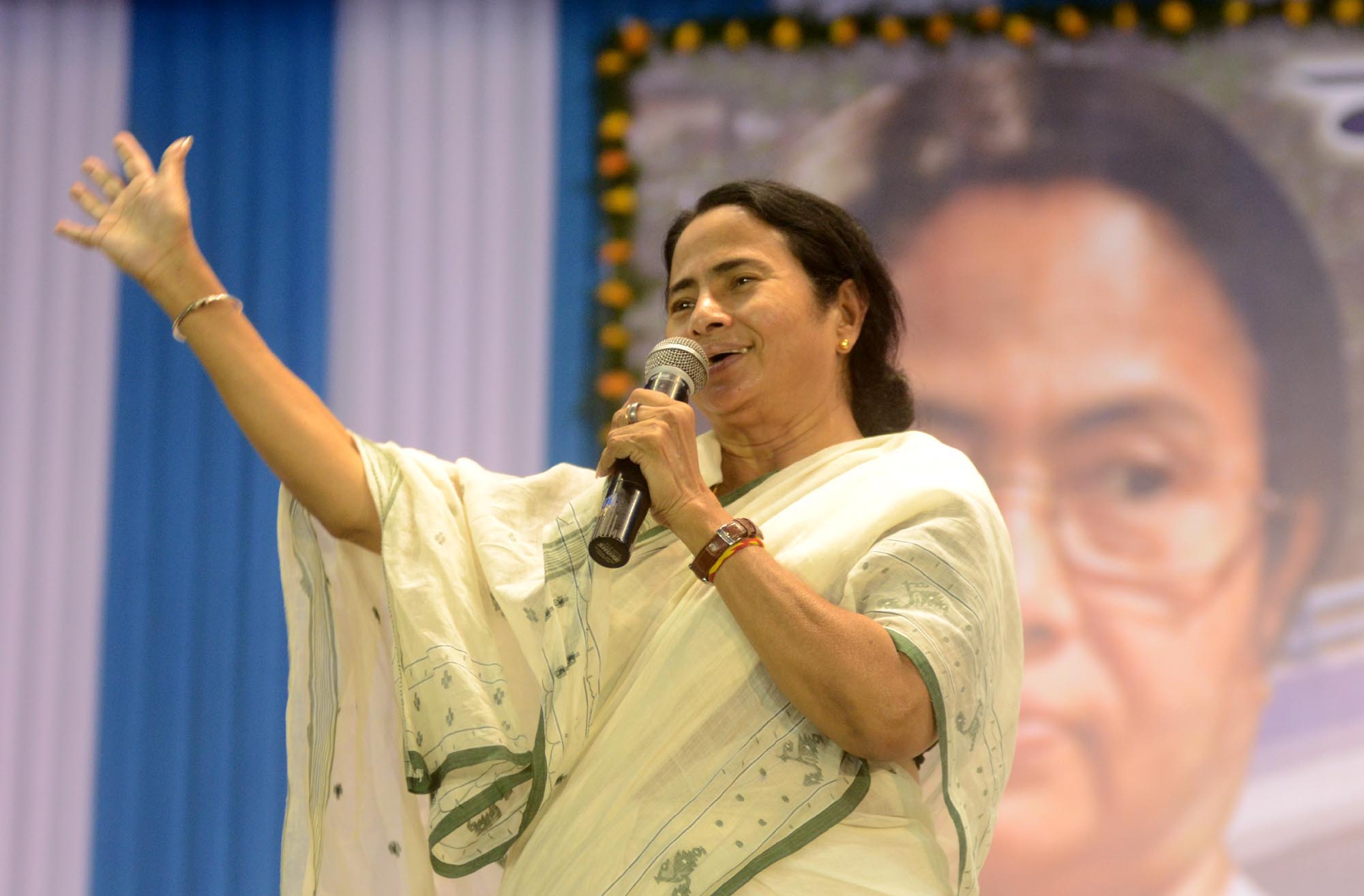
A CD containing songs composed by Chief Minister Mamata Banerjee will be released on Mahalaya. These songs have been sung by Indranil Sen, Lopamudra Mitra and Rupankar Bagchi.
Mamata Banerjee has written eight songs and composed the music for them too. Excerpts of the lyrics from two of the songs are: ‘Roudra chayae sakalbelae dustu misti hanshi, roder khelae barbar phire ashi,” and ‘Pal tol, pal tolre majhi’.
Despite her busy schedule, she composes songs while on tour and later adds tunes to them. It may be recalled that last August, Matri Maa, a CD containing nine songs written and composed Mamata Banerjee, was released during a function at Nazrul Mancha. It became a gold disc.
Mamata Banerjee is proficient with the electric organ, which she plays often in her spare time, after the days’ hectic work is done.
Source: Millennium Post
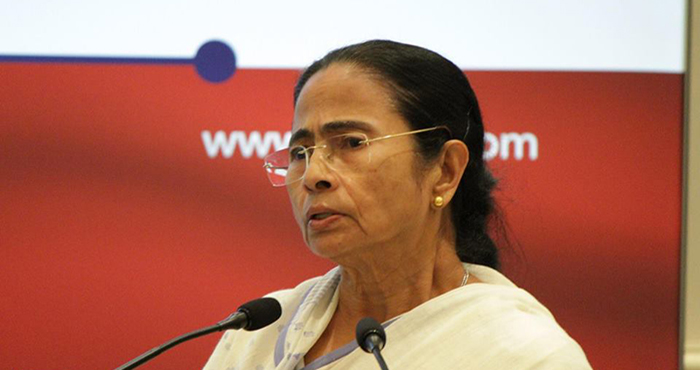
Earlier today, Chief Minister Mamata Banerjee spoke at a business meet in Milan, Italy jointly organised by ASSOLOMBARDA, Italian Trade Commission, FICCI and the Bengal Government. It was attended by potential investors from Italy.
She spoke on the strengths of Bengal and on the synergies that Italy and Bengal can create in various sectors. At the business meet there were detailed discussions on the possibilities of investment from Italy in sectors like infrastructure, manufacturing, design and innovation, ICT, leather, textiles, agro-processing, tourism and automobiles.
Here is what she said, while addressing the Italian investors:
Italy and Bengal are very similar in nature because Italy had their Renaissance in the 16th century and in Bengal too a Renaissance happened, in the 19th century. There is a big similarity. You have the art, the culture, the technology, the systems, the mechanisms, you have had so many renowned artists, and everybody says that Bengal is the cultural capital of the world. Bengal has produced so many renowned sons of the soil, like Tagore and and Netaji. You have so many experts from the fields of leather and technology. We respect all. We also love your foods, like pasta. We love your football too. Bengal is a land of football lovers, and we love Italian football too. Everybody is proud of Italy’s prowess in football.
I had come to Italy earlier, to the Vatican, on an invitation from them, in September 2016 when Mother Teresa received sainthood. Mother Teresa belongs to Kolkata. The Missionaries of Charity’s headquarters is there, and we maintain the best of relations with them.
You have so many industrial partners in India, about 600, and you have invested in Bengal too. We want to build up further on our relationship. Italian companies have invested in India in sectors like transportation, food processing, textiles, electronic equipment, leather technology, etc. The relation between Italy and Bengal can be scaled up. We are taking major steps in setting up design centres; Italy can be a major partner in that too.
Throughout history, Bengal has produced so many luminaries in so many fields. Now Bengal believes that Bengal means business. We have social commitment as well as commercial commitments. With respect to the former, we give free treatment to the downtrodden and we encourage empowerment of the girl child; we have policies to suit every stage of a person’s life – we give free saplings when a child is born, we provide money for cremation to the families which can’t afford it.
With respect to business, it is important to remember the strategic location of Bengal. It has historically been the centre of business; it is the gateway to South and South-East Asia – to Nepal, Bangladesh, Bhutan, Singapore, Bangkok, Kuala Lumpur. This is why Bengal has a major role to play. Bengal serves as a major hub in the trade route to south-east Asian countries, to the landlocked nations of Nepal and Bhutan, and to north-east India too – the eight sister States. Bengal’s population is also very significant.
If you look at the GSDP growth rate, that is, gross state domestic product, for 2017-18, at constant price, it is 9.15 per cent, compared to a growth in GDP for India at 6.7 per cent. Bengal has a higher growth in every sector, from agriculture to industry to services.
Italy has great experience in various technical fields whereas Bengal has skilled manpower, an aspect in which we are number one in India. Bengal has talented manpower at a price which is cheaper than in other parts of India, and the world as well. Bengal leads in education and culture. In skilled manpower, the MSME sector and e-governance, we are number one in India. In ease of doing business too, we are number one.
We also believe in grassroots development. We believe that like two sisters, agriculture and industry must live together, and in both, Bengal is doing very good. We have a land policy and a ready land bank. We have power available for industry 24×7. We also have rural electricity connectivity. The number of man-days lost has come down from about 80 billion to zero. An industry-friendly policy is also there, so too an MSME policy, a textile policy, an IT policy, an agricultural policy and a tourism policy. We also have food security, a health-for-all policy in the form of Swasthya Sathi, housing policy for the poor, environment policy, environment-friendly transport system and provide education for the marginalised people.
Our beauty is that we all work together – all castes, creeds and communities. We do not differentiate on this count. We believe that humanity is like a family.
Bengal has a great potential in the leather industry. We have a leather hub. You, the Italians, are famous for your leather industry. So we can use your experience and you can transfer your technology for our growth. So let us all work together. Italy is great in technology and Bengal is great in steel and mining.
We invite Italian companies to invest in Bengal. If you have the vision, Bengal has the mission, if you have the action, Bengal has the reaction, if you have the technology, Bengal has the manpower. So if you want to compare, we are like twin sister states – India and Italy. I believe our Indian government, our embassy will give full support to Italian industry. We are like a family. You invest your money in Bengal, and in other regions of India too. India is like your sweet home.

The State Government is going to start a 10-storeyed trauma care centre (TCC) At SSKM Hospital. This would be the second such centre, after the one at RG Kar Medical College & Hospital.
It will cost Rs 20 crore to build and will start operating by the end of this year. The government has plans to build such TCCs at all the six teaching hospitals in Kolkata, where a large number of trauma patients are admitted every year.
The centre will have all arrangements for emergency operations for road and air accident cases of severe neuro-surgical and orthopaedic injuries.
There will be facilities for pre- and post-surgery treatment for severe head injury cases.
Source: The Statesman
Image is representative

Mamata Banerjee has been the face of the land movement in Bangla. It was she who fearlessly fought against the tyranny of the Left Front Government during the Singur and Nandigram movements.
In 2006, the Left-led Government acquired 997 acres of multi-crop land for a car factory in Singur. The forcible acquisition, which was made under the colonial Land Acquisition Act of 1894, led to protests all over Bangla, led by Mamata Banerjee. She even went on a hunger strike for 26 days for the sake of farmers’ rights.
In 2011, Mamata Banerjee became the Chief Minister of Bangla after the people voted in large numbers for a change of guard in the State. Since then, the Government has taken up numerous initiatives for land reforms.
Here are some of the most important achievements:
Singur verdict
In compliance with the landmark verdict of the Hon. Supreme Court of India, land amounting to almost 980 acres, situated within the erstwhile Singur Project Area, has been returned to almost 12,000 families dispossessed by the project, after making the land suitable for cultivation.
New Land Bill
Following the footsteps of Bangla, the Right to Fair Compensation and Transparency in Land Acquisition, Rehabilitation and Resettlement (Amendment) Bill, 2015 was introduced in the Lok Sabha on February 24, 2015. The Bill replaced the Right to Fair Compensation and Transparency in Land Acquisition, Rehabilitation and Resettlement (Amendment) Ordinance, 2014.
Land Policy
From 2011 to 2018, many important policy decisions have been taken for achieving better administration, regulation and management of land:
In a bold policy initiative, the State Government has decided to waive tax on agricultural land. This will go a long way in not only mitigating hardships faced by farmers but also boosting agricultural output and income.
The Land Allotment Policy was formulated in financial year (FY) 2012-13 in order to introduce uniformity, reduce discretion and ensure transparency while dealing with public assets. The policy laid down a transparent process for allotments of land along with the terms for such allotments.
The Land Purchase Policy was introduced in FY 2014-15 to enable the State Government and its parastatal agencies to purchase land for infrastructure projects through a process of direct negotiation with willing landowners against just compensation and incentives. The scope of this policy was extended to land purchase for Central Government departments as well in FY 2016-17. The stated policy of the State Government is that there will be no forceful acquisition of land. The purchase policy of the Government is thus consent-based and transparent. So far, the Standing Committee on Industry, Infrastructure and Employment has cleared direct purchase of about 950 acres for various projects of public importance.
The State Land Use Board has developed a Land Bank of available land in all the districts of Bangla with a view to ensuring availability of land for infrastructural development for industries and other developmental work, including flagship projects of the State.
Amendments to Section 14Y of the West Bengal Land Reforms Act, 1955 were carried out in 2014 to broaden the scope of the section. Now entrepreneurs may, with prior permission of the Government, utilise ceiling-surplus land to set up units for various industrial and social infrastructural activities in sectors like information technology, shipbuilding, township, transportation terminal and logistics hub, in addition to existing sectors.
Land Use Map
Utilising the concept of index-linked land use, zoning maps were introduced in FY 2011-12 for the use of investors. Land Use Maps broadly contain parameters like dry/ barren land, single-crop land, double/ multi-crop land, forest land, metalled roads, national /state highways, railway network, waterbodies, etc.
Nijo Griha Nijo Bhumi
NGNB (launched in 2011) provides up to 5 decimal land to eligible beneficiary families (all rural landless and homeless agricultural labourers/ artisans/ fishermen). Almost 2.2 lakh NGNB pattas have been distributed under this scheme so far.
From 2011 to 2017, a total of more than 3 lakh pattas (including NGNB, agricultural and forest pattas) were distributed.

About two years ago, on August 31, 2016, the Supreme Court of India passed a historic judgment declaring that the land acquisition made by the erstwhile Left Front Government in Singur was illegal and unconstitutional. It asked the present Trinamool Congress Government led by Chief Minister Mamata Banerjee to return the plots to their owners. Thus the 10-year struggle of Mamata Banerjee against illegal land acquisition ended in a victory for the farmers.
Mamata Banerjee had hailed the Supreme Court’s decision and said she had “tears of joy”. On September 2, 2016, Singur Utsav was observed in every block of Bangla to commemorate the Supreme Court decision quashing the acquisition of land in Singur. Rallies were taken out by Trinamool activists and supporters in various parts of the State while celebrating ‘Singur Vijay Diwas’. Cultural programmes were held and the day was observed in the Vidhan Sabha too.
On September 14, 2016, Mamata Banerjee handed over land parchas (land deeds) and compensation cheques to farmers in Singur. To commemorate this occasion, September 14 is being celebrated as Singur Dibas this year.
Around 9,117 land deeds were handed over in 2016. Around 800 compensation cheques were handed over by the Chief Minister and her Cabinet colleagues to those farmers who had to unwillingly part with their land. “In the first lot, 9,117 parchas were given. All land will be returned in cultivable form within eight weeks,” she had said in 2016, during her visit to Singur after the judgement.
The Chief Minister said that the government will be setting up check dams and small tubewells for irrigation in Singur. She added that soil testing would be done and all fertilisers for making the land fertile and cultivable would be provided to the farmers.
On October 17, the Bengal Chief Minister said that the process of giving physical possession of land in Singur would begin on October 20 and will be completed in 15 to 20 days.
On October 20, Chief Minister Mamata Banerjee formally re-commenced farming on the plots of land in Singur which were given away to Tata Motors’ Nano project by the Left Front Government, by sowing seeds of mustard on those plots.
By November 2016, the land was returned and by January 2017, the 300 or so farmers whose land had not been affected by the steel and concrete structures had already started producing golden-skin potatoes that farmers in Singur are renowned for. Rabi and Boro crops were grown as well in Singur. The Government also encouraged the use of organic fertilisers there.
About 230 acres of paddy fields sown in early February using new, low-water techniques have produced knee-high crops. Sesame, maize, cucumbers and banana have also been planted. A new power network now runs 63 freshly drilled wells for dry season irrigation and sprinklers and drips are in use. The State Government had also provided farmers with high-yielding seeds, fertilizer and Rs 10,000 toward new farm equipment and extra workers to help with labour.
With all these steps taken, Singur has become a model for the agriculture and horticulture sectors.
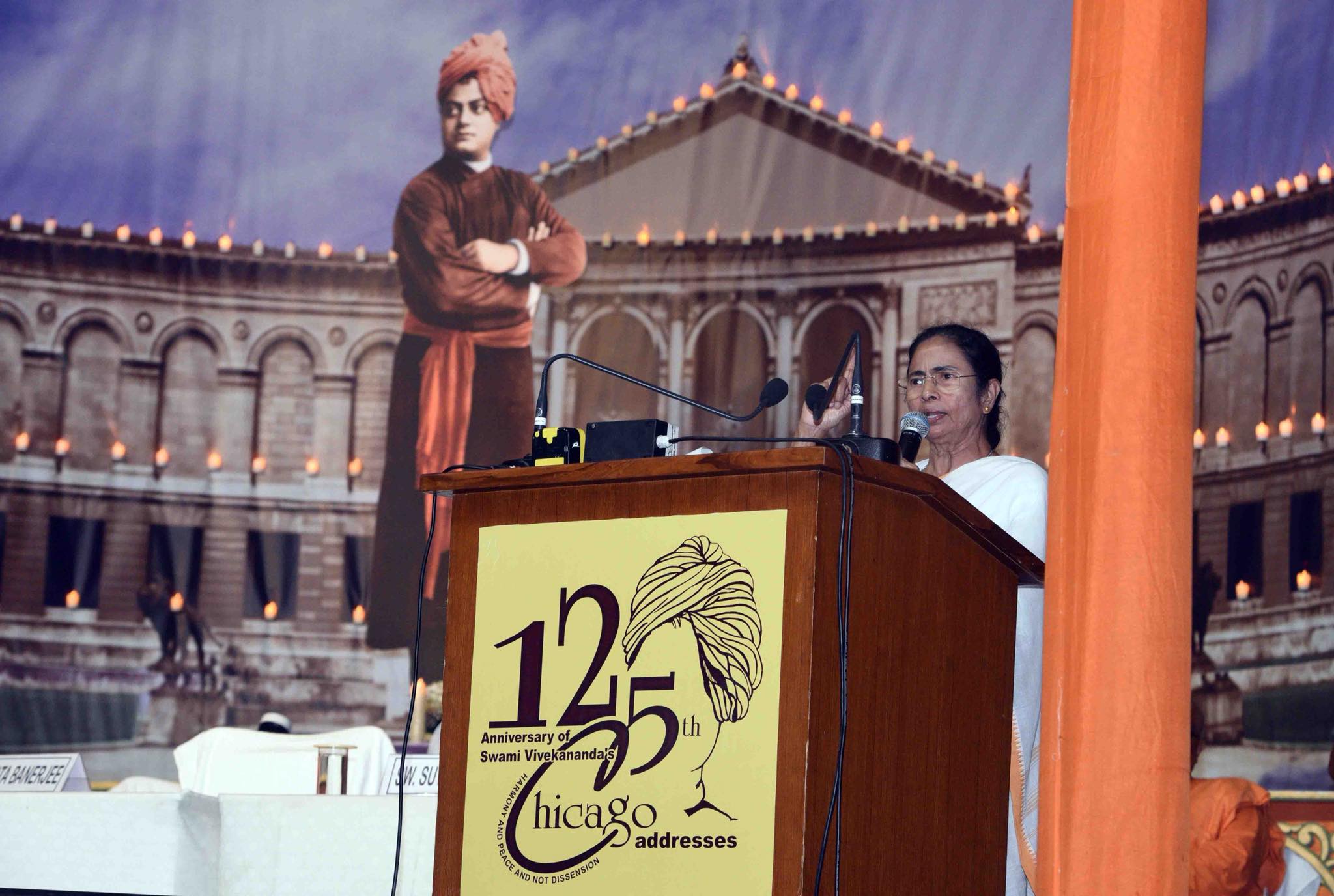
Today is the 125th anniversary of Swami Vivekananda’s historic speech at the World Parliament of Religions in Chicago. Bangla Government is commemorating the occasion through week-long programmes.
To celebrate the historic day, Chief Minister Mamata Banerjee was present at a function organised by the Ramakrishna Mission at Belur Math.
She said, “I wanted to visit Chicago but unfortunately I could not visit the place where Swamiji delivered his historic address. There was an evil conspiracy behind this. Some people did not want me to go.”
To commemorate the 125th anniversary of Swami Vivekananda’s historic speech at Chicago, Mamata Banerjee was invited by Ramakrishna Mission to attend a function in Chicago. However, the event was cancelled for ‘unavoidable circumstances’ in June.
Highlights of Chief Minister’s speech:
There is a great similarity in the ideals espoused by leaders – spiritual and political – like Swami Vivekananda, Rabindranath, Netaji, Gandhiji.
Swami Vivekananda had won the heart of the world with his speech at Chicago in 1893.
I wanted to visit Chicago to commemorate the 125th anniversary of Swamiji’s historic address. Sadly, I could not because of evil designs of a section of people, who did not want my presence there.
The forces that foiled my Chicago visit, I hope they read the preaching of Swami Vivekananda.
The Hinduism which Swami Vivekananda preached was not ‘imported’ from outside. It was formed in this soil. It has its roots in Vedas, Vedanta and Upanishads.
Swamiji used to say Hindu dharma is universal. He said, Hinduism not only tolerates other religions, but also recognises them as the truth.
We follow the Hinduism as preached by Ramakrishna, Swami Vivekananda. We do not believe in ‘imported’ Hinduism.
I’ve read Swamiji’s books and I believe in his ideals. The youth must be taught about Swamiji’s philosophy and thinking.
A true leader must always be ready to make sacrifices for the people. He must be dedicated to the country.
Tolerance is the essence of Hinduism. Hinduism is universal.
In just 39 years of his life, Swami Vivekananda shaped the spine of this country.
I feel ashamed when some people dictate you cannot eat this or you cannot wear that or who can stay here and who cannot.
Bangla is the land of tolerance. Hindu dharma teaches us to love people, not discriminate.
Come forward, lead a new awakening in the country.
We must despise conservatism. I appeal to all to embrace people with love. Humanism is the true religion. Religion is personal, festival is for all.
We must follow the ideals of Swami Vivekananda and Ramakrishna Paramhansa.
Ramakrishna had said, some people call mother ‘Ma’, some call her ‘Amma’. But we are all humans. That is our biggest identity. We must believe in harmony, not communalism.
Swami Vivekananda resides in our hearts. Hinduism teaches us to embrace everyone as equal.
Swamiji had said, “I am proud to belong to a religion which has taught the world both tolerance and universal acceptance”. We must all follow this philosophy.
We are giving Rs 1.5 crore to Vivekananda University. I am handing over a grant of Rs 10 crore to Swamiji. My respectful homage to all Maharajas.

Even as petrol prices soared to fresh record highs on Tuesday, Bangla Chief Minister Mamata Banerjee announced a Re 1 cut in price.
“For the time being, we have decided to slash one rupee for each litre of petrol and diesel. We also demand that the central government consider cutting down the cess on diesel and petrol prices,” the CM told reporters at Nabanna, the state secretariat.
She also attacked the centre saying that the BJP-led central government hiked excise duty nine times, even when the global crude prices were falling. “Our government has never increased the sales tax or cess during all these years,” she said.
“Our government is always pro-people. We will never take any decision that will harm the interests of the people,” she said.